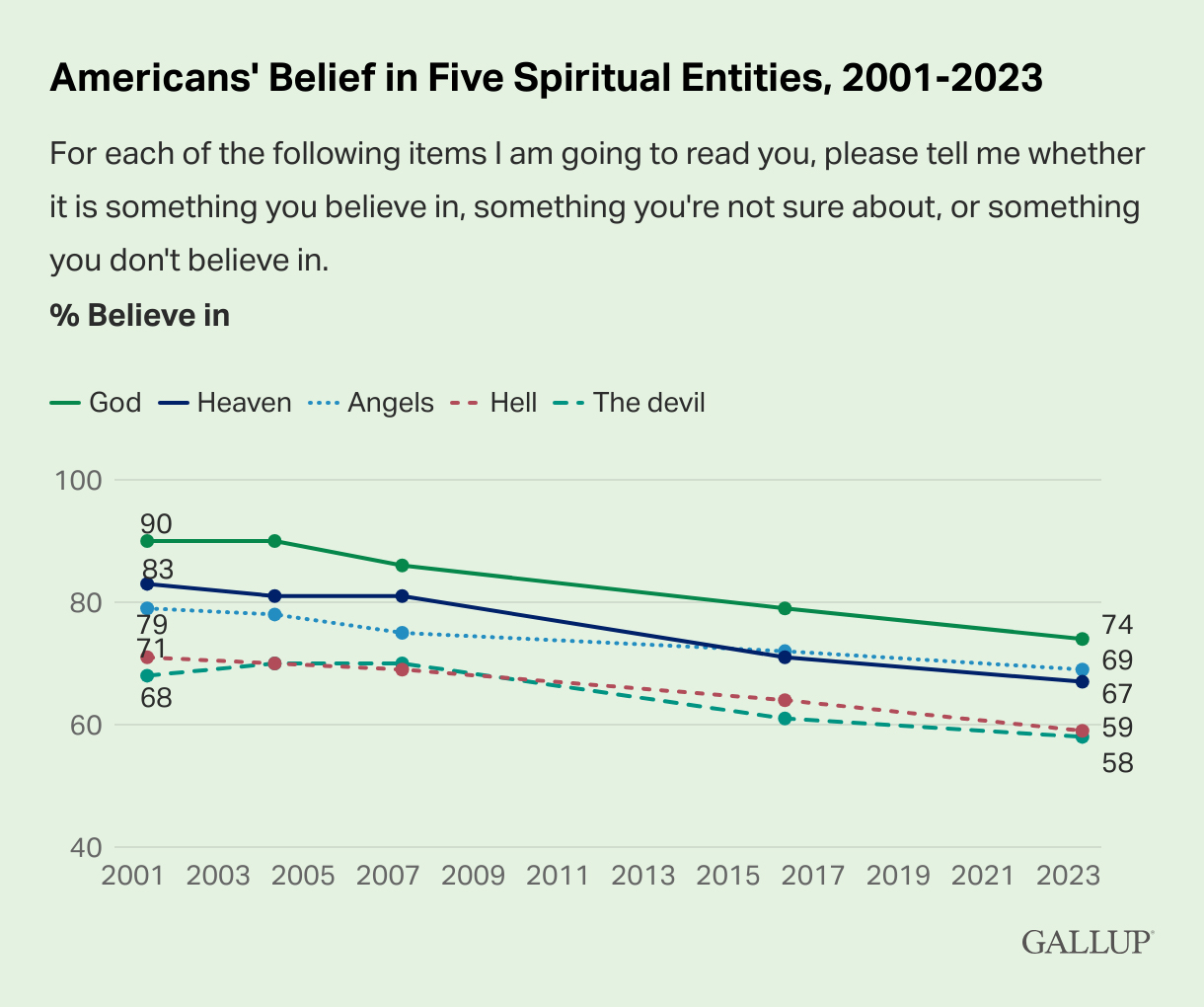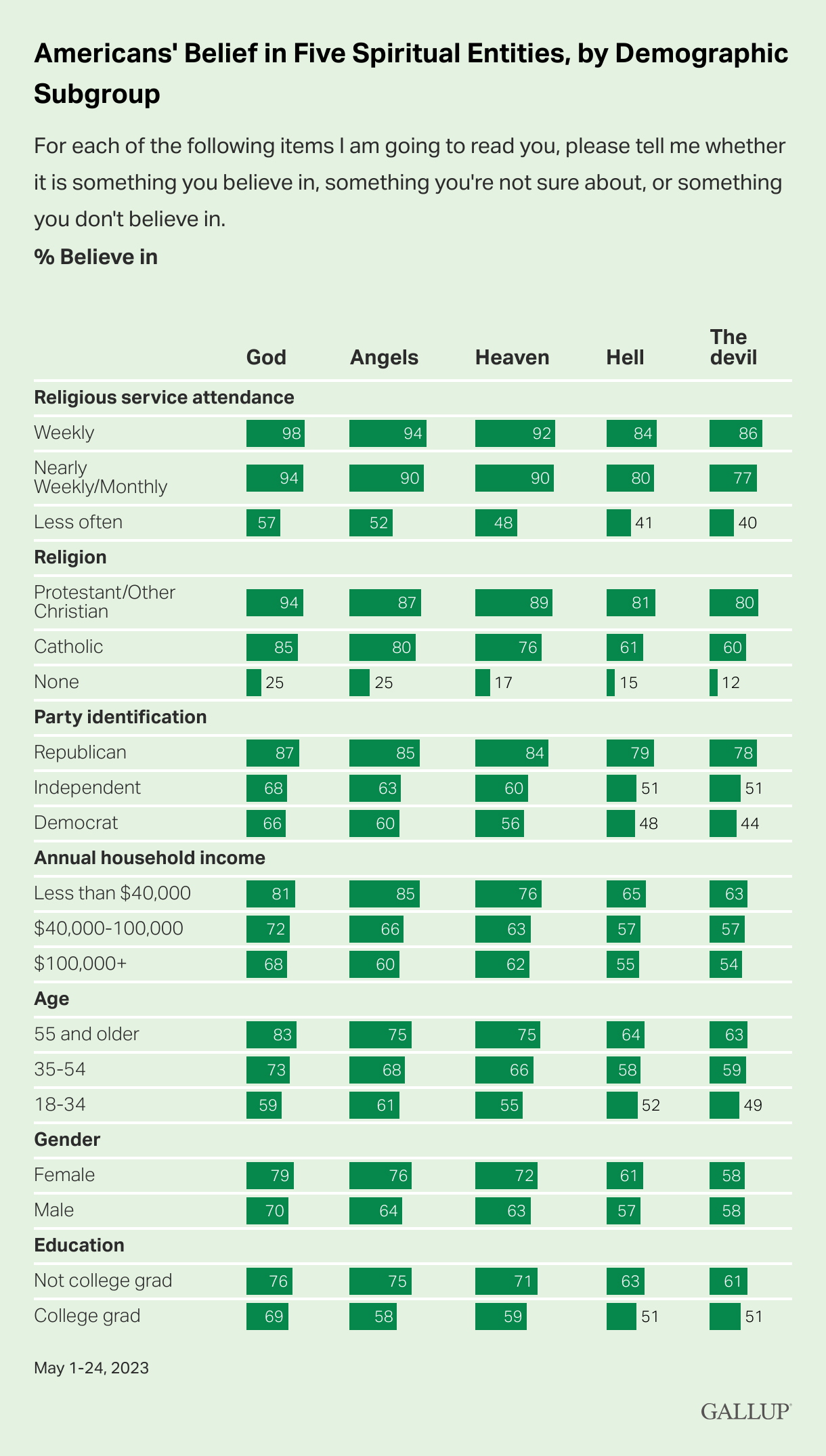(RNS) — The 21st century has been hard on God, with faith in the divine and organized religion facing unrelenting decline.
The devil, it turns out, is not doing much better.
Losing faith in God seems to be accompanied by disbelief in the devil, according to a new Gallup report that found that more than half of Americans (58%) said they believe he exists, down from two-thirds (68%) in 2001. About the same percentage (59%) said they believe in hell, down from 71% two decades ago.
The poll of 1,011 adult Americans, taken in May 2023, asked about beliefs in five spiritual entities: God, the devil, angels, hell and heaven. Belief in all five is at its lowest point since Gallup began polling about these five topics in 2001.
Belief in God (74%) dropped from 90% in 2001 to 74% in 2023. Belief in heaven was down from 83% to 67%, while belief in angels dropped from 79% to 69%.

“Americans’ Belief in Five Spiritual Entities, 2001-2023” Graphic courtesy of Gallup
The loss of faith in God and spiritual entities parallels a decline in religious identification and membership in faith communities. About 1 in 3 Americans claims no religion, a number that other recent studies say could grow to more than half by 2070. Fewer than half of Americans say they are members of a house of worship.
Just as people are divided about whom to vote for and what public policies to promote, politics also divided Americans when it comes to God, the devil and the afterlife. Republicans are more likely to believe in hell (79%) and the devil (78%) than Democrats, 48% of whom said they believe in hell. Forty-four percent believe in the devil.
Those with household incomes under $40,000 are more likely to believe in the devil (63%) and God (81%) than those with $100,000 in income. Among that higher income bracket, 54% said they believe in the devil while 68% said they believe in God.
White Americans are less likely to believe in God (70%) and the devil (66%) than Americans from other ethnic backgrounds.
Protestants were slightly more likely to believe in both heaven (89%) and hell (81%) than Catholics — where three-quarters (76%) believe in heaven and 61% believe in hell. Twice as many of the so-called nones — Americans who claim no religion — said they believe in God (25%) as say they believe in the devil (12%).

“Americans’ Belief in Five Spiritual Entities, by Demographic Subgroup” Graphic courtesy of Gallup
Meghan Henning, the author of “Hell Hath No Fury,” which looks at early Christian ideas about the afterlife, said she’s not surprised that Protestants, who include the nation’s evangelical Christians, retain higher levels of belief in the devil and hell than other Americans. Both are helpful when trying to evangelize people. Preachers, she said, often used the fear of hell to motivate people to accept Jesus as their savior.
It may scare them into church: Those who attend services weekly are most likely to believe in God (98%), angels (94%), heaven (92%), hell (84%) and the devil (86%). Those who attend services less than monthly are less likely to believe in God (57%), angels (52%), heaven (48%), hell (41%) and the devil (40%).

